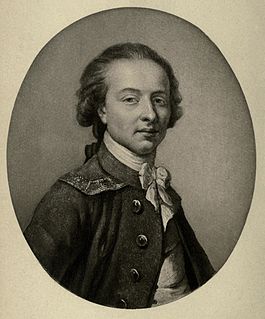A Quote by Gilbert K. Chesterton
If there is one fact we really can prove, from the history that we really do know, it is that despotism can be a development, often a late development and very often indeed the end of societies that have been highly democratic. A despotism may almost be defined as a tired democracy. As fatigue falls on a community, the citizens are less inclined for that eternal vigilance which has truly been called the price of liberty; and they prefer to arm only one single sentinel to watch the city while they sleep.
Quote Topics
Almost
Arm
Been
Citizens
City
Community
Defined
Democracy
Democratic
Despotism
Development
End
Eternal
Eternal Vigilance
Fact
Falls
Fatigue
Highly
History
Inclined
Indeed
Know
Late
Less
Liberty
May
Often
Only
Prefer
Price
Prove
Really
Sentinel
Single
Sleep
Societies
Tired
Truly
Very
Vigilance
Watch
Which
While
Related Quotes
[O]ur sages in the great [constitutional] convention... intended our government should be a republic which differs more widely from a democracy than a democracy from a despotism. The rigours of a despotism often... oppress only a few, but it is the very essence and nature of a democracy, for a faction claiming to oppress a minority, and that minority the chief owners of the property and truest lovers of their country.
The foremost or indeed sole condition required in order to succeed in centralizing the supreme power in a democratic community is to love equality or to get men to believe you love it. Thus, the science of despotism, which was once so complex, has been simplified and reduced, as it were, to a single principle.
It has been said that terror is the principle of despotic government. Does your government therefore resemble despotism? Yes, as the sword that gleams in the hands of the heroes of liberty resembles that with which the henchmen of tyranny are armed ... The government of the revolution is liberty's despotism against tyranny.
Savages have often been likened to children, and the comparison is not only correct but also highly instructive. Many naturalists consider that the early condition of the individual indicates that of the race,-that the best test of the affinities of a species are the stages through which it passes. So also it is in the case of man; the life of each individual is an epitome of the history of the race, and the gradual development of the child illustrates that of the species.






































